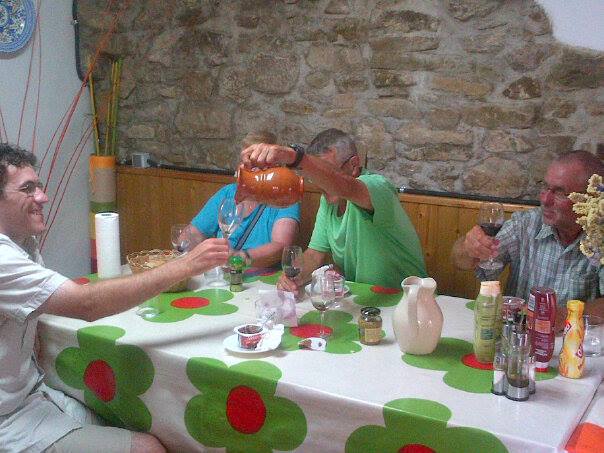
Ever been home and looked around only to see so much that needs to be done that it is impossible to get started? It can be overwhelming, with gardening, weeding, mowing, dishes, dinner, dusting, and laundry. The lists go on and are as varied as we are, despite so many common tasks to which to tend (moved that preposition there, I did).
Yeah, that to me is life. I look around and see so much more that needs to be done and seen and experienced than I couldn’t possibly do in ten times ten lifetimes that I just get brain-lock. I still have my eyes set on Spain again, Siberia, the Continental Divide Trail, the Canadian Rail, biking to Coos Bay, Oregon, and around Ireland. I want to grow a bountiful garden and I’d love to raise a goat. I have books to write and old friends and family to visit. The list goes on and on and the time does not, it simply does not. It took me decades to realize I just need to pick a direction and go, see what happens and then bounce from there. Still, sometimes I sit on my porch and look out at the property and end up instead walking the docks looking at sailboats, thinking about cruising around the bay or down the inter-coastal waterway someday, or we drive around taking pictures and we always end up at this abandoned building on a bluff over the river and I think how I’d love to open a pub there. It makes me tired thinking of it all and I can’t even write because there are so many words and I can only chose one to get going, so instead I sit on the porch and look out, tired, but not really.
I often wonder if seemingly lazy people aren’t unambitious as much as they are simply overwhelmed with possibility without firm decision-making skills.
Artists can be like that. Writers and musicians too. I remember a line from a song written by Alan and Marilyn Bergman—“I pity the poor one, the shy and unsure one, who wanted it perfect but waited too long.” Love that.
Just yesterday I read an article by a writer who said he shoots for no less than 100 rejections a year. That is his goal, he wrote, adding that if he doesn’t get at least 100 rejections a year it means he wasn’t working hard enough. I know what he means. Often we sit on possibility not because we are afraid of failure—rejections are more than welcome and way more than common—but because we are never quite sure if it is the “right” place to send something, or to return to the life example, the right place to go, the right person to ask out, the right plan for the weekend. It isn’t that we don’t want to get it wrong as much as we want to make sure it is right. There is a fine difference and it feeds our idleness.
Idleness leads to chronic immobility, both physically and mentally. In writing classes I tell my students to just go, pick a direction and go, and it might not be the right way but I swear somewhere in paragraph three you will make a left turn into exactly where you want to be next. And so in all things, just go. Sometimes we are afraid we might miss something if we go, or stay, or change or remain idle. That’s funny since no matter what happens we’re going to miss something. The list of things we’ll never do will always be infinitely longer than the things we attempt.
So this was all brought on because I was listening to very old James Taylor, which isn’t always a good idea because it reminded me, as music is apt to do, of times in my life I sat staring at possibility, and today it was a very particular time I recalled during which I hesitated because I was overwhelmed. Well, I’m not feeling overwhelmed anymore, just much older. I’ll be fifty-six in a few days and I don’t much care about that. Age really never has and still doesn’t bother me in the least. The only thing, the one thing, which bothers me is if I become indifferent to the passing of time and incapable of getting up and jumping off into whatever might be next.
And so I will do so. Tomorrow.









